East End Nonprofits and the Season of Giving Back
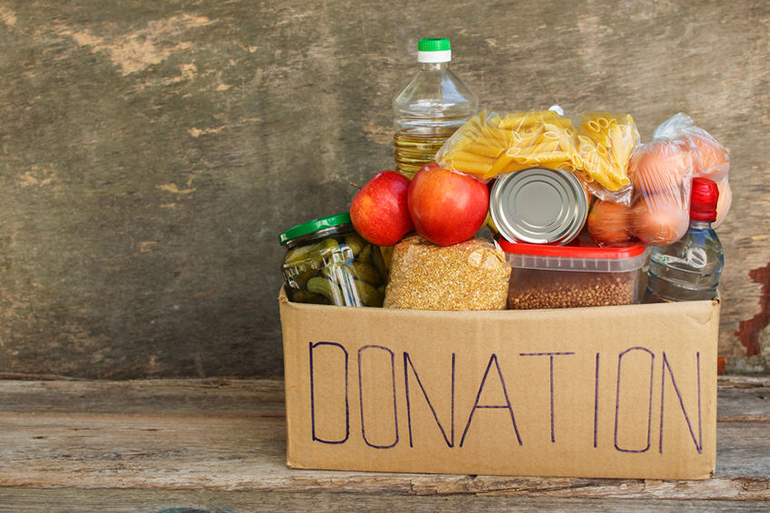
Picking up groceries for a neighbor. Sewing masks for essential workers. Sending a meal from a local restaurant to hospital employees. Volunteering time and sending money and donating resources. Since the crisis that descended upon us in March with COVID-19, the ways in which individuals have risen up to help one another on the East End has been nothing short of heroic.
“The pandemic brought out the best of the people who live here—long-time, seasonal and new residents. Many who love the East End and who came here to weather this storm have been incredibly generous. And for that we are all very, very grateful,” says Claudia Pilato, President of the Board of Directors of All for the East End (AFTEE). As a 501(c)(3) whose singular mission is to raise funds that are available through a grant process to support the work of the nonprofit organizations (NPOs) of the five East End towns—East Hampton, Southampton, Shelter Island, Southold and Riverhead—the group has a unique perspective on the challenges, successes and needs of the nonprofits in the Hamptons and on the North Fork.
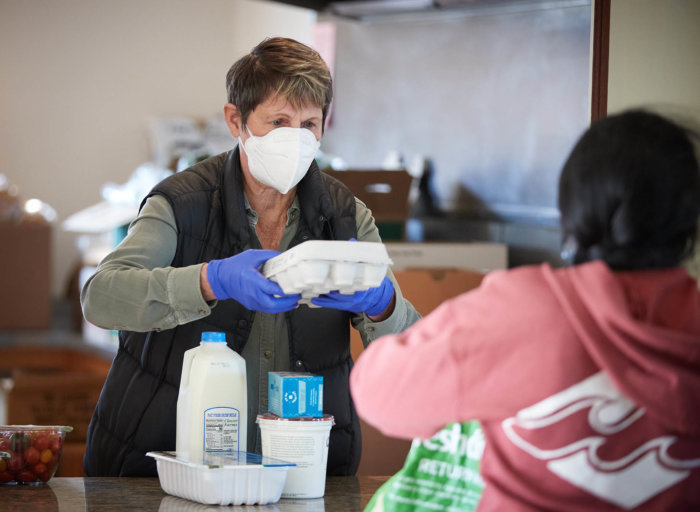
And when she says “we,” she speaks of the entire community of NPOs that is thankful. There are more than 1,000 nonprofits on Long Island’s East End, large and small, established and fledgling, serving needs ranging from food to financial. Every one of them is essential, and every one of them needs help like never before. “We have to humbly request that the generosity continues,” Pilato adds, “so we can all get through this difficult time together.”
The arrival of Thanksgiving and the holiday season, with its traditional meals and gatherings around the table, brings us together on many levels. And food insecurity is perhaps the issue most focused upon when we talk about giving back.
“The COVID-19 pandemic has uncovered many weaknesses in our food supply chain, and highlighted the importance of local food and regional economies,” says Heather Meehan, Outreach and Education Manager and East End Farm to School Coordinator, East End Food Institute. “We know that there were inequities in food access prior to the COVID-19 pandemic, and that seasonal unemployment and underemployment exacerbate those issues on the East End.
The East End Food Institute has been working with volunteers to process and preserve local food for community food banks and food pantries through their Farm to Community program, and they also re-launched the Virtual Farmers Market to provide a year-round market for local growers and producers. Their food production has doubled over the past year, as they transform fruits and vegetables into dressings, dips, sauces, jams and frozen foods (volunteers helped process and freeze 1,365 pounds of carrots and sweet potatoes that were which in turn delivered to the Long Island Cares Food Bank in October) that are distributed at markets and farm stands, in schools and at food pantries across the twin forks.
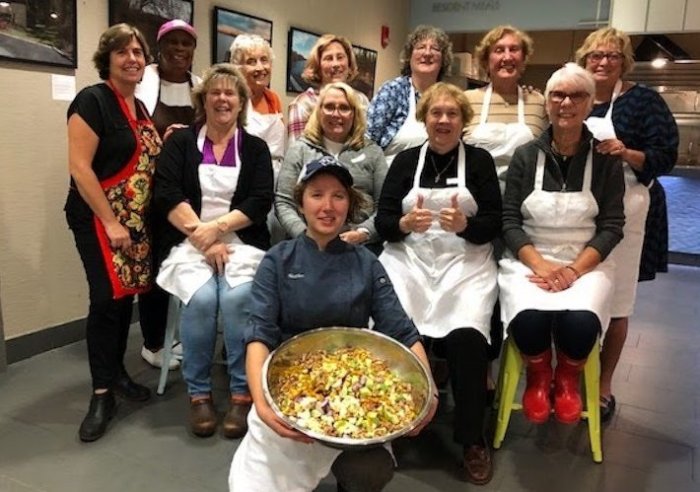
“With local food pantries reporting as much as a 300% increase in need during the height of the pandemic, we expect that these challenges will only increase this winter,” Meehan says. “That’s why we have been working with our farm and food pantry partners to provide all community members with access to locally sourced food—but there is still a lot of work to be done.”
Homelessness is an issue that too often goes under the radar on the East End, a growing area of concern where much work needs to be done as well, and where much of the burden falls upon Maureen’s Haven. “Now that the colder weather is coming. calls for services are increasing every day,” says Dan O’Shea, the group’s Executive Director. “We started our Emergency Winter Shelter Program on November 1, and we have been close to capacity each night. In addition, due to the pandemic, many other organizations that provide similar services in Suffolk County will not be operating this season, and as of now, Maureen’s Haven is the only private, non-County-operated shelter in Suffolk County.”
Whereas in past years they may have had 20 Host Sites, this season they are operating about 12, with several acting mainly as overflow sites. In addition to changes in locations and space, they have also altered their approach to keep everyone safe. “We are also asking the volunteers limit their interactions with other volunteers, staff, and our guests. It is all about the health and safety of all participants. Rather than have a number of volunteers on site each night helping with the program, many are now serving pre-made meals, doing all the set-ups prior to our arrival, and limiting interactions such as eating meals together, playing cards or board games, or limiting fellowship. It’s been a challenge, but we are all committed to making it work as safe as possible.”
Safety has numerous incarnations and sources. In some cases, the confines of a home do not offer a haven at all, but rather a source of danger. Especially this time of year. “The holidays don’t stop instances of abuse,” says Loretta Davis, Executive Director of The Retreat, a safe haven for families in crisis, providing domestic violence and sexual assault services along with education to families, friends and neighbors in Suffolk County. “In fact, they may exacerbate them. Victims are trapped and isolated at home due to virus quarantines. And stressful holidays can explode abusive behavior. Victims have no safe space to escape or privacy to make a lifesaving call. The abusers control their every move.”
Incidents of abuse and violence have been on the rise, and The Retreat now has a waitlist for counseling clients. With an increased need for services comes an increased need for resources. “The community has been tremendously generous, but how do we keep that support coming? The pandemic has caused financial instability to businesses and individuals, and we know we will face cuts from the county and state. Will our community, and the local and federal government, recognize the importance of funding to support these critical services? The Retreat and others must advocate for that funding to not only continue but to increase. How will we continue to be able to provide free services without the needed funding?”
Indeed, the question of finding the money to continue during the pandemic has hit every nonprofit sector. That includes the world of local arts organizations. The Westhampton Beach Performing Arts Center and the Southampton Arts Center, Sag Harbor’s Bay Street Theater and Sag Harbor Cinema, Water Mill’s Parrish Art Museum and the Children’s Museum of the East End in Bridgehampton and Guild Hall in East Hampton, nonprofits all. The arts are essential to the fabric of this community, a fabric woven of entertainment venues and museums and theater companies and historical societies that had to quickly adapt from to a world of virtual events and fundraising efforts while maintaining that uniquely personal connection that is a part of their very experiential nature.
“Our community has been very generous in supporting new fundraising efforts with all COVID restrictions in place,” says Southampton History Museum Executive Director Tom Edmonds, whose organization has pivoted in every direction possible. “We created a Picnic Basket Benefit to replace a gala, a garden tour instead of a house tour, and a holiday tree auction in a barn—including a donation from Martha Stewart. We will include these new activities to our fundraising schedule in future.”
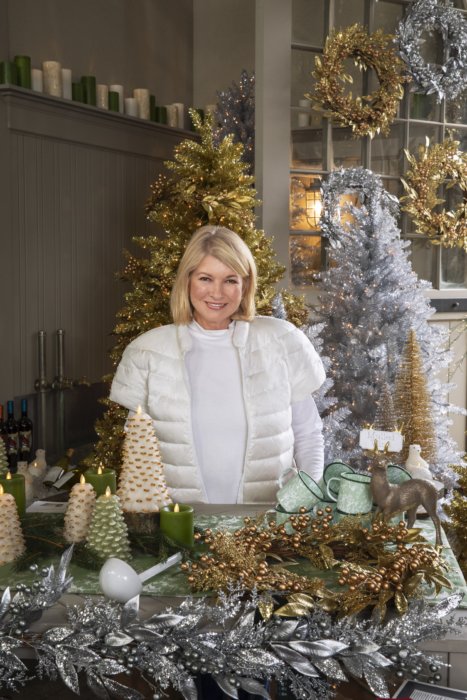
Much of the challenge facing the entire nonprofit community revolves around not only pivoting in the present—when efforts and offerings must change and also increase to help fill growing voids—but also building toward tomorrow. Just because there is uncertainty ahead does not mean dreams for that future are on hold. Quite to the contrary, hope and a vision are perhaps more important now than ever, notes Bonnie Michelle Cannon, Executive Director of the Bridgehampton Child Care Center.
“There is so much more that we want to do for our kids, families and community. The need is great to help level the playing field, educationally, socially and economically for our working families,” she says. The Center offers afterschool, teen and college prep programs, along with a food pantry that served 70 individuals a month pre-COVID and now serves 700 individuals weekly, but the work doesn’t end there. “We provide our Thinking Forward Lecture Series to educate and inspire our entire community, now being done virtually on Instagram and Facebook Live. We offer many topics on specific health challenges for our communities of color. We teach, inform and create important conversations about race and social justice. The Center is in the planning stage for a workforce training program called ‘Teach Me How to Fish.’”
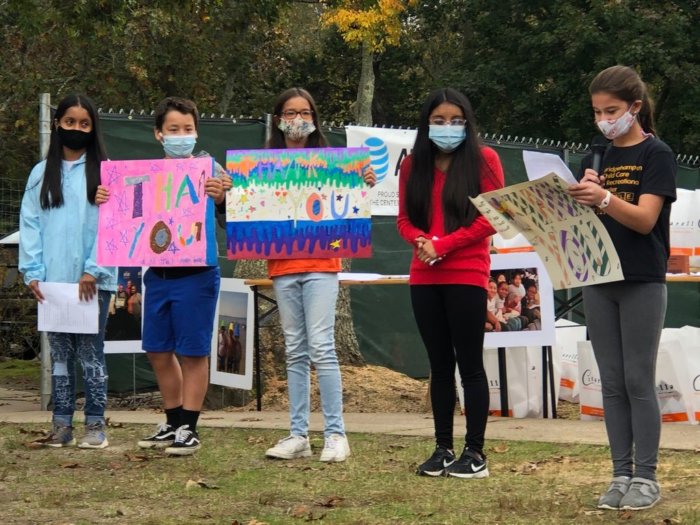
As for those looking to get involved, “unique ways to help abound,” Cannon continues. In addition to looking for volunteers to offer virtual classes and talks, individual tutoring and reading bedtime stories for after-school children, she says, the Center has a rare opportunity to offer local teens mentoring and inspiration. “We want to expose them to the limitless opportunities that lay ahead for them. Learning about different career and employment options is a critical component for their futures. The Center is embracing the Latino community and starting ENL classes. We are looking for business owners and industry executives to inspire our youth and teach them about workforce opportunities. Our ultimate goal is to help our teens and young adults be able to receive the education and training needed to secure internships and good-paying jobs.”
Opportunity to teach the next generation starts, well, at the beginning. Supplies for Success, whose mission has been assembling and distributing school supplies on the East End for kids in the three-to-eight age group, has kept their efforts moving forward by creating CareKits for children who became homebound with school closures, filling backpacks with crayons, glue, construction paper and other staples that “are luxury items for families living paycheck-to-paycheck and a welcome treat for kids whose parents are working long hours during the coronavirus crisis,” says the group’s Founder and President, Mindy Richenstein.

In addition to having backpacks filled at two warehouses, Supplies for Success asked volunteers to host backpacking events at their homes. “We were pleasantly surprised at what we thought would be a way to engage our most devoted supporters resulted in more than 40 families signing on to pack backpacks that they then delivered to community partners,” adds Vice President Jill Bodian. “Many volunteers were new to us. People told us that ‘It was fun, and a great way to teach our kids about the importance of giving back.’ The kids loved doing it—so much so that after some packed the first batch, they signed up to do more!”
More. That is the need. That is the goal. That is the battle.
“Pandemic exhaustion is probably the biggest challenge,” Pilato says of the road ahead. “Donations have dropped off, but the needs are again rising rapidly,” Pilato says. “The problems we faced in the early spring are again escalating. Seasonal work is over, utility bills are rising with the cold weather, quarantines are forcing people to stay home from work. Where is the money for rent, food to feed a hungry family and funds for other necessary services? This is an important time for all of us to reach into our pockets and do what we can, not only for AFTEE, but whatever local organizations people personally support. Every one of those organizations is in need. If you can give a little more, now is the time.”



